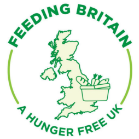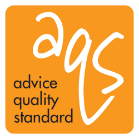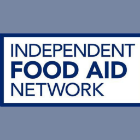Our Response to Covid-19: The First 6 Months
November 16, 2020

Below is a short report that summaries how Sufra NW London responded to the coronavirus pandemic between March-September 2020 – and how this has transformed the charity.
***
It’s almost impossible to explain all that’s happened at Sufra since the pandemic hit the UK. The coronavirus placed unprecedented pressure on our services and forced us to transform every aspect of how we operate and interact with our guests. In many ways, we are now a very different charity – although our commitment to supporting vulnerable people in crisis has only grown stronger.
For a start, Covid-19 infections have devastated the lives of countless families in our community. Brent is the most ethnically diverse area of the UK, with a huge BAME population that is subjected to systemic inequalities and a welfare system decimated by years of austerity.
The pandemic has also left thousands without any form of income. Brent has one of the highest furlough rates in the UK, and a disproportionate number of those we support have lost their jobs and are unable to make ends meet.
As a result, demand for food aid has gone through the roof: it increased by a staggering 371% in the first 6 months of the pandemic. This tsunami of need arrived alongside lockdowns, self-isolation and social distancing concerns, and we were forced to cut back on the number of volunteers on site and change the way we work.
We were heartbroken to close our Food Bank’s welcoming front door to the public. But we were determined to do more than ever for the community, so we set up a delivery service for food parcels and a new Community Kitchen delivery service that operated 7 days a week. We also recruited volunteer drivers – many from local businesses, other charities and even Brent council.
Together, in the first 6 months of the pandemic alone, we distributed over 53,000 food parcels and hot meals – that’s over 174 tonnes of food that had to be collected, cooked, packed and delivered. We also ramped-up our advice and refugee services, which now operate remotely, and scaled up our food growing project in St. Raphael’s Edible Garden.

Scaling-Up to Meet Demand
None of this would have been possible without your generous help. Thank you for responding to our coronavirus campaign quickly and with true community spirit. We also had a fair amount of exposure in the mainstream media at the beginning of the crisis, which was a blessing.
Most of the donations we received were spent directly on purchasing food, but we also used some of it to scale up the infrastructure needed to respond to the huge numbers of new people suddenly approaching us for help.
- We set up a new professional kitchen, with support from the Freemasons (thank you!), and employed Prince, our much-loved Community Chef, to manage a huge team of volunteers and cook fresh food for those who don’t have cooking facilities – mainly the homeless.
- We hired a dedicated Food Aid Coordinator to manage the expansion of our food parcel packing/delivery operation and support our team of amazing volunteers who make sure the service works smoothly.
- We re-conceptualised how best to use our limited building space and converted our storage facility on St. Raphael’s Estate into an additional packing facility and office. For now, we’re using a donated warehouse in Luton to store our food and a donated van to transport stock (do let us know if you have a local warehouse you can loan us).
- Nicholas, our new part-time Community Grower, is in the garden as I write this, growing and harvesting even more fresh fruit and vegetables to help supplement our food bank and kitchen. Meanwhile, Jim has been working with local residents who’ve been supporting us in the garden and learning how to grow food at home.
- Our infrastructure had to be scaled-up considerably to support this huge expansion. We recruited a part-time finance manager, driver/stock coordinator and we established a dedicated Advice Manager role to help develop our advice and refugee services (which we are currently recruiting for if you are interested). We also facilitated home working for some staff and implemented a VOIP phone system to support our new remote set up.
That’s a phenomenal amount of growth over just a few months – all whilst dealing with a pandemic, lockdowns and a host of other frustrations and challenges. It’s been utterly exhausting; but we feel uplifted and humbled by the dedication of our volunteers and support we receive from people like you.

Bringing the Community Together
Sufra is all about community. Whilst we were forced to reduce physical contact with those we support, we’ve done much to develop our partnerships with others in and around Brent so that we can achieve more together.
Thanks to Brent council’s renewed focus on collaboration with the voluntary sector, we have been working closely with a number of senior council teams on discussions about food aid needs/concerns across Brent. We also supported the set up and operation of the temporary food bank the council organised when we first went into lockdown – they did a truly commendable job.
We also work with the council on behalf of the Brent Food Aid Network (BFAN). All food banks in Brent have seen a surge in numbers, and many have struggled to meet demand. BFAN has allowed us to meet regularly with new and existing food aid organisations to share resources, coordinate efforts, identify concerns and feed back to Brent council.
Together, we developed a Food Security Road Map and we’re working on options to reduce the demand for food aid by increasing access to other forms of available support. Our recommendations were fed through to Brent Council and Brent’s Poverty Commission Report, which you can read here.
We are working far more closely with a number of other key voluntary sector organisations, such as the homelessness charity Crisis, who we collaborate with to ensure that homeless people in and around Brent have daily access to food. We also meet regularly with Age UK, Brent Young Foundation, CVS Brent and many other inspiring organisations working tirelessly to support those in need during the pandemic.

Beyond Food Aid
Sufra is also a member of the Independent Food Aid Network, which represents and supports independent food banks across the UK. Their perspective, relationships with key food poverty groups and ongoing lobbying of key government departments (such as the DWP), is helping to shape the future of food banks in the UK – and informs our perspective on food aid.
Let’s remember that food aid is not the solution to poverty, no matter how well it is organised. Indeed, it might be part of the problem. For example, food aid organisations are in real danger of becoming a standard part of the welfare system – and that would be a shockingly regressive step for the UK that undermines our basic human rights, such as the right to food.
Sufra has long been committed to addressing the causes of poverty in the community through our advice service, refugee and employment programmes, and our community food growing initiatives. But the real solutions lie in addressing systemic inequality and the underlying causes of hunger and poverty – such as inadequate benefits, expensive rents, low wages etc.
As such, we are committed to doing more campaigning and lobbying in the years ahead to shape the policy debate on hunger, poverty and inequality. This, along with a greater focus on our civic engagement activities, are two key parts of a new three-year strategy that will soon be published – watch this space.
Rajesh Makwana
Director
Latest News











